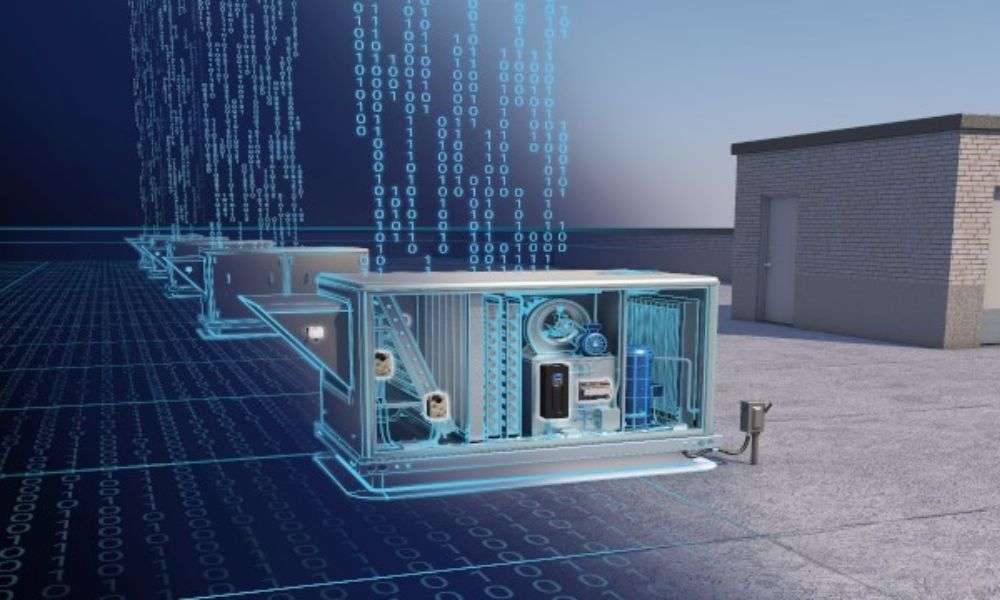In the dynamic world of HVAC systems, achieving optimal performance and energy efficiency is paramount. At the forefront of this revolution is hvac control loop optimization using AI, a groundbreaking approach that is reshaping how we manage and maintain these essential systems. By integrating artificial intelligence into HVAC control loops, industries can experience unprecedented improvements in operational efficiency, energy consumption, and overall system performance.

Understanding HVAC Control Loops
Before delving into the transformative impact of AI on HVAC control loops, it is essential to understand what these control loops are. In an HVAC system, control loops are responsible for regulating variables like temperature, humidity, and airflow to maintain desired environmental conditions. These loops consist of sensors, controllers, and actuators that work in harmony to achieve a set point, ensuring comfort and efficiency.
The Role of AI in Control Loop Optimization
Traditionally, HVAC control loops relied on predefined settings and manual adjustments. However, AI-driven optimization introduces a paradigm shift. By leveraging machine learning algorithms, AI enables continuous analysis of data collected from sensors and external sources. This data-driven approach allows for real-time adjustments, ensuring that the system operates at peak efficiency while adapting to changing conditions.
Benefits of AI-Powered Optimization
The integration of AI in HVAC control loops offers numerous benefits, including:
- Energy Efficiency: AI continuously analyzes energy usage patterns, minimizing waste and reducing operational costs. Learn more about energy usage patterns.
- Predictive Maintenance: By detecting anomalies and predicting equipment failures, AI reduces downtime and extends the lifespan of HVAC components. Explore anomaly alerts.
- Improved Comfort: AI ensures a consistent and comfortable indoor environment by adjusting settings in real-time.
- Cost Savings: With reduced energy consumption and maintenance costs, businesses can achieve significant financial savings.
Implementing AI in HVAC Systems
To harness the full potential of AI in HVAC control loop optimization, a systematic implementation process is crucial. This involves:
Data Collection and Analysis
Gathering comprehensive data from HVAC systems is the first step. Sensors collect information on temperature, humidity, occupancy, and energy consumption, creating a rich dataset for analysis.
Machine Learning Model Development
Developing robust machine learning models tailored to specific HVAC systems is essential. These models enable predictive analytics and automated decision-making, enhancing system performance. Discover more about AI models in HVAC.
Integration and Testing
Integrating AI solutions into existing HVAC infrastructure requires careful planning and testing. Regular evaluation ensures that the AI system functions optimally and delivers the expected benefits.
Challenges and Considerations
While the benefits of AI-driven optimization are substantial, there are challenges to consider:
- Data Security: Protecting sensitive data from cyber threats is crucial in AI implementation.
- System Compatibility: Ensuring that AI solutions are compatible with existing HVAC infrastructure is essential for seamless integration. Investigate technician tools.
- Initial Investment: Implementing AI may require a significant initial investment, but the long-term benefits often outweigh the costs.
The Future of HVAC Systems
As technology continues to advance, the future of HVAC systems looks promising. With ongoing developments in AI and IoT, we can expect even greater efficiency and innovation in HVAC control loop optimization. Businesses that embrace these advancements will be well-positioned to thrive in an ever-evolving industry.

FAQ
1. How does AI optimize HVAC control loops?
AI optimizes HVAC control loops by analyzing real-time data and making adjustments to maintain optimal performance and energy efficiency.
2. What are the cost benefits of AI in HVAC systems?
AI reduces energy consumption and maintenance costs, resulting in significant long-term savings for businesses.
3. Is AI implementation in HVAC systems challenging?
While there are challenges, such as data security and initial costs, the benefits of AI-driven optimization make it a worthwhile investment.
In conclusion, hvac control loop optimization using AI is revolutionizing the industry. By leveraging AI technology, businesses can achieve enhanced efficiency, cost savings, and improved comfort. As we move forward, embracing AI-driven solutions will be key to staying competitive and sustainable in the world of HVAC systems.
This article contains affiliate links. We may earn a commission at no extra cost to you.
